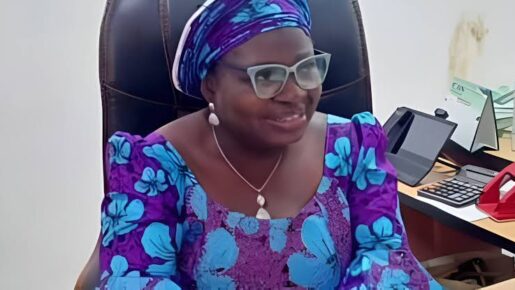The Federal Government on Tuesday officially launched toll operations on the Abuja–Akwanga–Lafia–Makurdi Road corridor to repay the $460.8 million loan obtained from the China Exim Bank for the road’s rehabilitation and upgrade.
It also announced that motorists using the highway would begin paying tolls ranging from N500 for saloon cars to N1,600 for multi-axle vehicles.
However, police and military vehicles are exempt from toll fees to facilitate their operations.
The toll gates on the route are divided into four sections: Keffi, Akwanga, Lafia, and Makurdi.
The 227.2km road was rehabilitated and upgraded through a preferential credit loan from the China Exim Bank. The last administration secured a $460.8 million loan from the bank, covering 85 per cent of the project’s $542 million total cost.
As part of the loan agreement, the Federal Government committed to tolling the road upon completion, with revenue collected from toll operations prioritised for loan repayment.
Speaking at the official commissioning of toll operations at the Garaku Toll Station in Nasarawa State, the Minister of Works, David Umahi, reiterated the government’s commitment to ensuring the proper maintenance of Nigeria’s federal roads through sustainable funding mechanisms.
Represented by the Minister of State for Works, Bello Goronyo, Umahi stated that the road was rehabilitated and upgraded through a preferential credit loan from the China Exim Bank.
According to him, funds generated from tolls would also be used for the maintenance of federal roads nationwide, adding that toll operations would help sustain road networks across the country.
He explained that in 2023, the previous administration executed a 25-year “Operate and Maintain” concession agreement with Messrs China Harbour Operations and Maintenance Company Limited in partnership with Messrs Catamaran Nigeria Limited.
He said, “It is with great pride and optimism that I stand before you today, on behalf of the Federal Government of Nigeria, as we officially launch toll operations on our federal roads, beginning with the 227.2km Abuja–Keffi–Akwanga–Lafia–Makurdi Road corridor.
“As you are aware, this road corridor is a vital infrastructure route in Nigeria, serving as a key highway for economic and social activities in the central and northern regions of the country.
“It is crucial for Nigeria’s economic, social, and strategic development, serving as an essential artery for trade, mobility, and national security while contributing to infrastructure growth, urbanisation, and national cohesion.
“It is worth recalling that the Federal Government rehabilitated and upgraded the road through a preferential credit loan from the China Exim Bank.
“Toll operations mark a pivotal step towards achieving our vision for a more efficient, sustainable, and well-maintained road transport system.
“Today, we embark on a journey to ensure that our infrastructure is preserved for the benefit of present and future generations. The collection of tolls will generate much-needed revenue for road maintenance and expansion.”
The minister stated that the project aligns with the priorities of President Bola Tinubu’s Renewed Hope Agenda, which aims to build a robust and interconnected infrastructure network.
“It is important to state that the Toll Order/Fee Schedule has been gazetted as follows: saloon cars will be tolled at N500, SUVs/jeeps at N800, minibuses at N1,000, and multi-axle vehicles at N1,600.
“However, frequent road users, such as commercial light vehicles defined under the Federal Highway Act, will enjoy a 50 per cent discount,” he added.
Additionally, tricycles, pedal vehicles, motorcycles, and other two- or three-wheeled transport modes primarily used by disadvantaged populations will be exempt from toll charges.
Also speaking, the Nasarawa State Governor, Abdullahi Sule, represented by his deputy, Dr Emmanuel Akabe, commended the President for completing the road and urged Nigerians to cooperate to ensure the project’s success.
On his part, the Permanent Secretary of the Federal Ministry of Works, Folorunsho Adebiyi, emphasised the importance of roads and the need for their proper management.
Adebiyi noted that less than one per cent of Nigerians travel by air.
He said, “In Nigeria today, we have four major modes of transport: air, rail, water, and road.
“The most accessible, affordable, and realistic means of transport remains the road. Air travel is faster and preferable for those who value time, but the reality is that less than one per cent of Nigerians travel by air.”
He further stressed the need to generate sufficient revenue for effective road maintenance.
“When you examine the statistics, domestic air travel in Nigeria records about 13 million passengers annually, with approximately 12 million travelling internationally. However, when adjusted to exclude duplicate names, the actual number drops to less than 250,000.
“This is why our roads appear extremely stressed. As traffic volume increases daily, the average load on our roads also rises,” he stated








